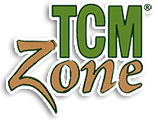Precision Medicine in TCM: Personalized Approaches for Individualized Patient Care

By Xiyuan “Alex” Qiu, L.Ac.
In the realm of Traditional Chinese Medicine (TCM), the concept of personalized or precision medicine is deeply ingrained, with practitioners tailoring treatment protocols to address the unique constitution, patterns of disharmony, and specific health concerns of each individual patient. Advanced acupuncturists and herbalists leverage a wealth of diagnostic techniques and therapeutic modalities to create highly individualized patient plans that optimize treatment outcomes and promote holistic well-being. In this advanced guide, we explore the principles and practices of precision medicine in TCM, highlighting specific herbal and acupuncture approaches that exemplify the art of personalized patient care.
Understanding the Principle of Individualization in TCM
At the heart of TCM is the recognition that each patient is a unique and dynamic entity, influenced by a myriad of external and internal factors that shape their health and well-being. The practice of precision medicine in TCM begins with a thorough assessment of the patient’s constitution, including their physical characteristics, lifestyle habits, emotional disposition, and medical history. Advanced practitioners employ a variety of diagnostic methods, including pulse diagnosis, tongue diagnosis, palpation, and detailed patient interviews, to gain insight into the underlying patterns of disharmony that contribute to the patient’s symptoms.
Creating Personalized Treatment Protocols
Once the practitioner has gathered comprehensive diagnostic information, they can begin to formulate a personalized treatment plan that addresses the root causes of the patient’s health concerns while also targeting their specific symptoms and manifestations. This may involve a combination of acupuncture, herbal medicine, dietary therapy, lifestyle modifications, and mind-body practices tailored to the individual needs and preferences of the patient.
Individualized Herbal Medicine Prescriptions

For example, a patient presenting with symptoms of liver qi stagnation and spleen deficiency may benefit from a personalized herbal formula containing chief herbs such as Chai Hu (Bupleurum Root) and Bai Shao (White Peony Root), which help to soothe liver qi stagnation and nourish the spleen, respectively. These chief herbs may be complemented by deputy herbs such as Bai Zhu (Atractylodes Rhizome) and Zhi Gan Cao (Honey-Fried Licorice Root), which reinforce the actions of the chief herbs and address secondary patterns of disharmony.
Customized Acupuncture Treatment Plans

For example, a patient with a pattern of kidney qi deficiency and liver yin deficiency may receive acupuncture treatment focused on nourishing these specific organ systems. Points such as Kidney 3 (Tai Xi), Kidney 7 (Fu Liu), Liver 3 (Tai Chong), and Spleen 6 (San Yin Jiao) may be selected to tonify kidney qi, nourish liver yin, and regulate the flow of qi and blood throughout the body (Maciocia, 2015).
Conclusion: Advancing Patient Care Through Precision Medicine in TCM
In conclusion, precision medicine in TCM represents a sophisticated approach to patient care that recognizes the unique constitution, patterns of disharmony, and health concerns of each individual. Advanced practitioners of acupuncture and herbal medicine play a pivotal role in creating personalized treatment protocols that optimize therapeutic outcomes and promote holistic well-being. By harnessing the principles and practices of precision medicine, we can elevate the standard of care in TCM and empower patients to achieve optimal health and vitality.
**References:**
– Bensky, D., Clavey, S., & Stoger, E. (2015). Chinese Herbal Medicine: Materia Medica (3rd ed.). Eastland Press.
– Maciocia, G. (2015). The Foundations of Chinese Medicine: A Comprehensive Text (3rd ed.). Churchill Livingstone.

